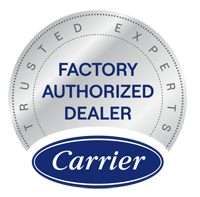Purchasing a new air conditioning system is a major decision that directly impacts comfort, energy costs, and indoor air quality. With temperatures rising during the summer months, choosing the right AC unit becomes essential to maintaining a cool and comfortable home. To make a smart investment, it’s important to evaluate several key factors before making your purchase.
1. SEER Rating: Measure of Energy Efficiency
The Seasonal Energy Efficiency Ratio (SEER) is one of the most important metrics when comparing air conditioners. It measures the cooling output over a typical cooling season relative to the total energy consumed. A higher SEER rating indicates greater energy efficiency, which can result in long-term savings on your electricity bills. When choosing a new unit, look for models with SEER ratings that exceed the minimum industry standard for better performance and cost efficiency.
2. Proper Sizing for Maximum Comfort
Air conditioner sizing refers to the unit’s cooling capacity, measured in British Thermal Units (BTUs), not its physical dimensions. A system that is too large may cool the room quickly but will cycle on and off frequently, leading to inefficient operation and poor humidity control. A unit that is too small will struggle to maintain a comfortable temperature on hotter days. Proper sizing should account for your home’s square footage, insulation, layout, and sun exposure. A professional HVAC assessment will help ensure the right size for optimal comfort and efficiency.
3. Choosing the Right Type of System
There are several types of air conditioning systems available, each suited to different needs and home layouts. Split systems are common for zoned cooling and are known for their efficiency and versatility. Ducted systems provide centralized cooling for entire homes but require more complex installation and space for ductwork. Portable and window units are suitable for renters or temporary solutions, though they may offer less efficiency. Consider your long-term needs, budget, and space constraints when selecting the best system.
4. Energy Efficiency Features Beyond SEER
While the SEER rating is a key factor, it is not the only indicator of energy efficiency. Units with the Energy Star label meet or exceed federal standards and typically offer better long-term performance. Look for additional features such as variable-speed compressors and inverter technology, which allow the system to adjust output based on demand. These innovations can enhance energy savings and provide more consistent indoor temperatures.
5. Modern Features That Add Value
Today’s air conditioners come equipped with features that enhance both comfort and convenience. Smart thermostats let you control your system remotely and set automated schedules. Features like programmable timers, sleep modes, and integrated air purification can further improve your home’s air quality and efficiency. These upgrades are especially beneficial for families with allergies or those looking to reduce their energy usage.
6. Installation and Maintenance Matter
Even the most advanced air conditioner won’t perform well without proper installation and maintenance. Working with a licensed HVAC technician ensures that your unit is installed to manufacturer specifications and operates safely and efficiently. Routine maintenance such as filter changes, refrigerant checks, and annual inspections helps extend the life of your system and keeps it running at peak performance.
Get the Right Cooling Solution for Your Home
At Superior Air, we help homeowners in Visalia, CA make informed decisions when it’s time to upgrade their air conditioners. Our team provides expert guidance, quality installations, and dependable maintenance services to ensure your comfort all year long. Call us today at (559) 734-2002 or complete our online form to schedule a consultation and start your journey to a cooler, more energy-efficient home.



